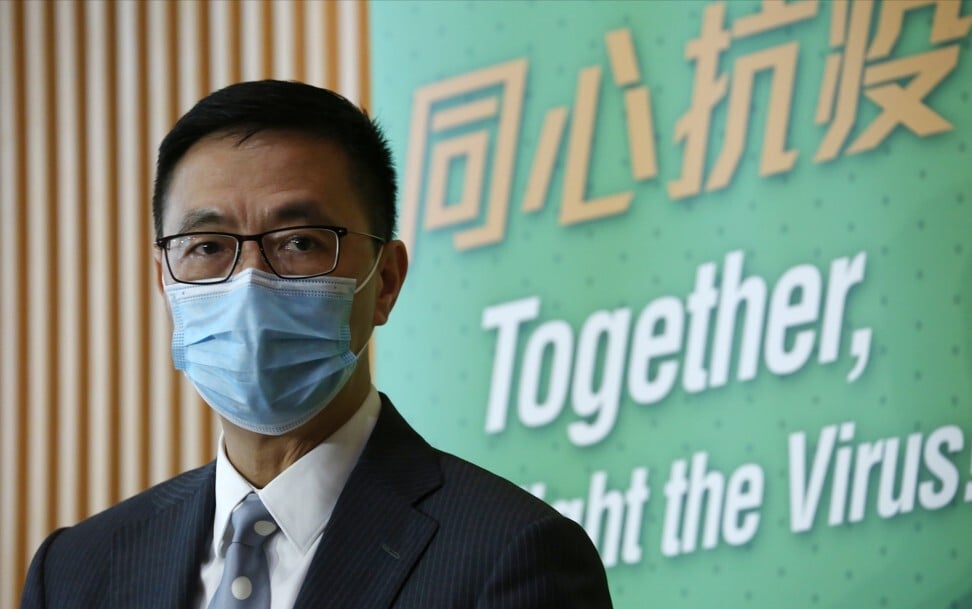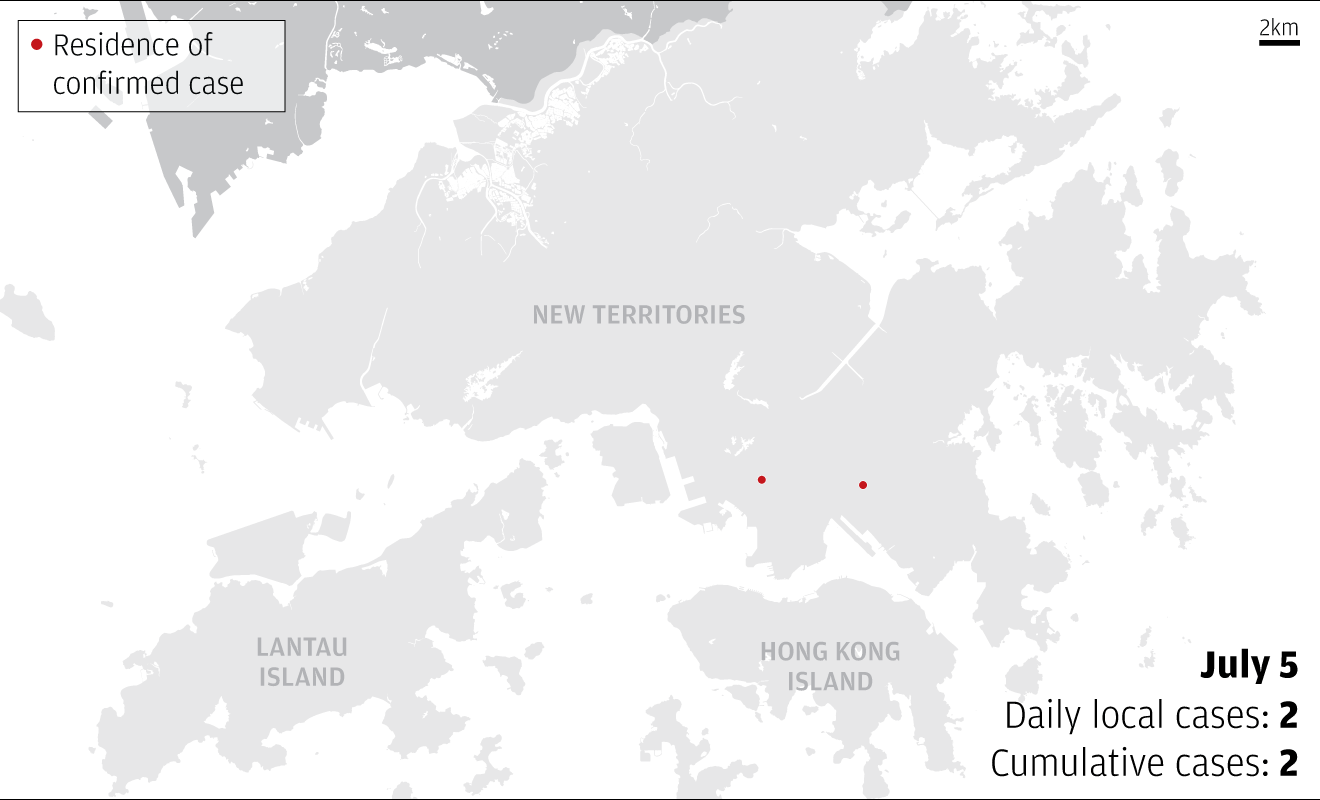
Hong Kong mulls Covid-19 testing for schools, priority return of some pupils
Secretary for Education Kevin Yeung Yun-hung said pupils coming into their first and final years of primary and secondary education could be allowed to return to school grounds first, after announcing on Monday the decision to extend the suspension of face-to-face teaching until further notice.
Asked if his bureau would contemplate the large-scale coronavirus testing of students sitting their Diploma of Secondary Education exams this academic year so they could be back in the classroom sooner, Yeung said the city’s health authorities were still assessing which categories of Hongkongers to target.
“The Food and Health Bureau and the Centre for Health Protection have been considering as a whole when mass testing takes place, what would be the respective arrangements, and which groups of residents would be covered,” Yeung told a radio programme.
“We will take that into consideration. If the testing is so large-scale, for example, it can help a majority of Hongkongers or can cover specific people, then we will look at the situation and see if something extra could be done for schools. We will look at the development before making a decision.”
However, at Hong Kong’s daily Covid-19 press conference, Dr Chuang Shuk-kwan of the Centre for Health Protection said: “I'm not sure [about] the rationale for testing students, because one test does not mean anything. “If you [are] asymptomatic, and you tested negative, you may still get infected afterwards.”
State broadcaster CCTV has reported that mainland China would help Hong Kong carry out the tests for its 7.5 million residents, while the head of the Guangdong team of experts deployed to the city said they aimed to boost daily testing capacity locally to 200,000, from its current level of 20,000 to 30,000.

Secretary for Education Kevin Yeung. Photo: Jonathan Wong
Subsidised Secondary Schools Council chairwoman Halina Poon Suk-han said questions remained over whether participation would be compulsory under a programme reliant on public resources.
“If we are talking about all students in Hong Kong, it would be a large amount of up to 900,000 students,” she said.
Lin Chun-pong, vice-chairman of the Hong Kong Association of the Heads of Secondary Schools, said although mass virus testing for schools might be able to secure the confidence of parents, the decision of when face-to-face classes could resume should be based on how the epidemic developed and health experts’ advice.
“Even if mass testing is in place … we still have to consider the health risks of bringing students back on campus amid the ongoing pandemic. That’s a decision that should be made based on medical experts’ opinion,” Lin said.
Head teachers last month suggested to Yeung that Form Six, Form One, Primary Six and Primary One pupils should be among those given priority if face-to-face classes resumed.
Yeung said on Tuesday that education officials had been evaluating that proposal, which was dependent on the pandemic situation, with half-day classes in place to reduce the health risks.
“We will try to strike a balance between the students’ learning needs and their ability to take care of themselves. If we see they are suitable to return to schools earlier based on their learning needs, we also want to make them go back to schools earlier,” he said.
Hong Kong third wave
Tracking the spread of local Covid-19 cases

Tai Tak-ching, principal of SKH Tang Shiu Kin Secondary School and chairman of the Wan Chai District Headmasters’ Conference, said many Form Six students were lagging behind in their learning schedule after months without face-to-face learning.
He said most catch-up classes held in school for senior secondary students, which were originally scheduled in July and August, had to be moved online due to the third wave of Covid-19 infections, meaning the teaching schedule could be further affected.
“We are really worried as face-to-face classes [would probably] not be able to resume in September. But the Education Bureau and exam authorities still haven’t come up with specific modifications in terms of the scope of the exams, which makes it even more difficult for [schools] to work things out,” he said.
In a statement, the Hong Kong Examinations and Assessment Authority said it would discuss with the education sector and further review arrangements for the upcoming university entrance exams, with more details released after a decision was made by its public examinations board.











